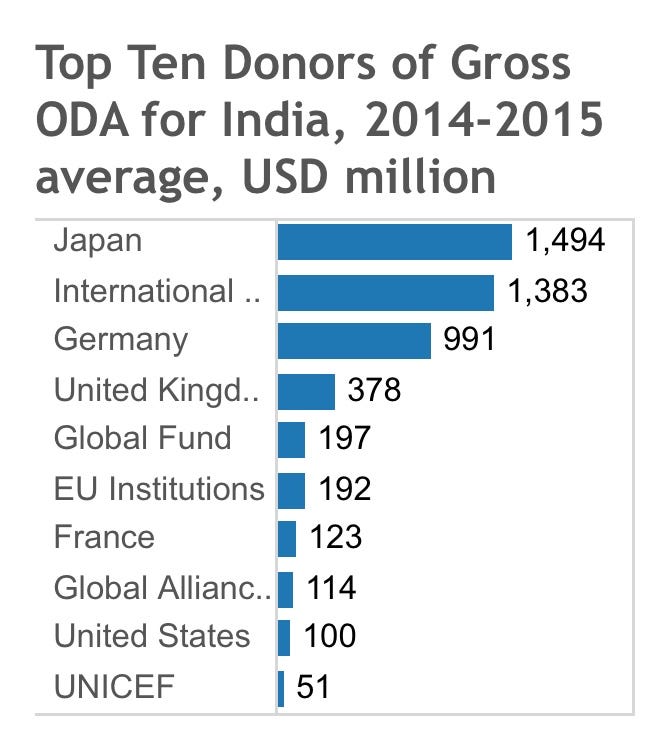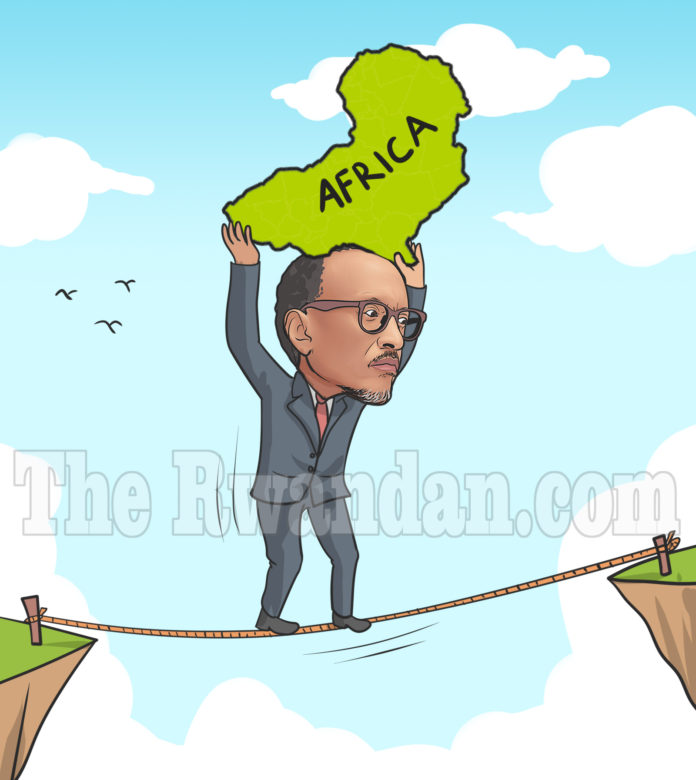By David Himbara
Chairing the African Union (AU) rotates annually among African heads of state. It is Rwanda president Paul Kagame’s turn in 2018. He has waited nearly twenty years for this moment since formally becoming president in 2000. What then can we expect from the man during his tenure? Expect three constant fantasies. Here they are.
Kagame’s Fantasy Number One
He will fantasize that his purpose is to free Africa and Rwanda from aid dependency and donors’ influences. Even though Rwanda is heavily dependent on aid, and Kagame is the leading donor darling, his rhetoric is the opposite. He often adopts an aggressive anti-donor stance casting himself a Pan-African revolutionary fighting Western imperialism.
Kagame’s Actual Record In Lessening Rwanda’s Dependency On Foreign Aid Is A Dismal Failure
In December 2016, Kagame ordered his government officials to set a deadline for ending Rwanda’s dependency on foreign aid. Kagame re-stated his favourite and constant statement that the dependency on foreign aid to pay for things that benefit Rwanda not only cripples self-reliance but it also degrades the dignity of Rwandan people. As Kagame put it,
“It is better to face things the hard way and go straight to the heart of any problem. Therefore, among the decisions of this Umushyikirano, we should resolve to set a deadline, which should come sooner rather than later, after which Rwanda will no longer be waiting for what others hand out to us.”
This was, of course, utter nonsense. Back in August 2012, Kagame had launched his Agaciro Development Fund, aimed at financing Rwanda’s development process free from foreign aid. The whole thing became a nightmare for Rwandans. While contributions to the fund were supposed to be voluntary, Rwandans were terrorized into surrendering up to one month’s wages.
But brute force could not possibly make a poor population with a per capita income of US$702 contribute money they did not have. By December 2016, the Agaciro Development Fund had total assets of no more than RWF38 billion — equivalent to US$45 million. Meanwhile, foreign aid to Rwanda actually increased from US$878 million in 2012 to US$1 billion in 2015.
Kagame’s Fantasy Number Two
Kagame fantasizes that foreign aid is anti-development, and that aid is inherently bad for the developing world. In Kagame’s own words,
“there is no documented evidence of a nation or people anywhere in the history of the world who progressed by receiving assistance from other people.”
In Reality, Foreign Aid Plays Important Roles In Development Except Where National Leadership Is Mediocre
Kagame’s assertion quoted above is pure fantasy. The statement should be corrected to read as follows:
“There is no documented evidence of a nation or people anywhere in the history of the world who progressed WITHOUT receiving assistance from other people.”
Foreign Aid in itself has never deterred socioeconomic progress for any country or region. What matters is presence of a leadership that has a purpose, capacity, and commitment to use foreign aid to create a foundation for greater prosperity. Today’s economically successful countries received massive amounts of external assistance that augmented domestic capabilities. In such countries, foreign aid especially contributed to the building of human and physical capital. But in countries with a mediocre leadership, such as Kagame’s Rwanda, aid is not used productively, like everything else.
Look at the case of today’s India, for example. India receives over US$3 billion annually in foreign aid.

And yet, India is the world’s 7th largest economy with a US$2.2 trillion gross domestic product (GDP). Rwanda’s Nyabarongo I Hydro Power Plant was financed by the government of India’s EXIM Bank. Two Indian companies, Angelique International Limited and Bharat Heavy Electricals Limited, built the plant. In other words, foreign aid to India does not negate the country’s rising economic power. In due course, India will outgrow foreign aid as did other countries such South Korea, Taiwan, Germany, and Japan.
Kagame’s Fantasy Number Three
Throughout 2018, Kagame will continuously sing that donors have failed the African Union. He will say that their support is unreliable and unpredictable. Donors will provide Kagame with a perfect scapegoat while he shows off that he is the man to fix the continent.
The Main Challenge For The African Union Is Member States’ Defaults
Currently, donors finance almost all critical operations in problem areas facing the African Union, not least peacekeeping across the continent. The explanation for AU’s near-total dependency on donors has to do with its member states — they routinely fail to pay their contributions. The African Union explains this problem as follows:
“About 30 Member States default either partially or completely on average, annually. This creates a significant funding Gap between planned budget and actual funding, which hinders effective delivery of the African Union’s agenda.”
When Kagame hosted the African heads of state in Kigali, Rwanda, in 2016, his peers granted him the role of reforming AU into a self-financing institution. The Kigali meeting then adopted a 0.2% levy on eligible imports in all member states as a means of raising US$1.2 billion which sharply reduce AU’s dependency on donors.
An ambitious timetable was set. US$325 million had to be raised in 2017 — which would incrementally rise to US$400 million by 2020. Crucially, in 2017, the levy was
“to finance 100% [of AU’s] Operational Budget, 75% Program Budget and 25% Budget of the Peace Support Operations of the African Union.”
So, did the levy finance 100% of AU’s operational budget and 75% of its program budget in 2017? I would be pleasantly surprised if the levy materialized to support either the operational or program budget.
Your Excellency, Be Careful What You Wish For Because You Just Might Get It And Regret It
Mr. President, I am sure you have heard the often told story about a character who made a wish and actually got what he wished for, only to find that the reality did not live up to his fantasy.
In your case, your wish for African and Rwandan freedom from foreign aid just came closer to becoming a reality as you begin to chair the African Union. But as in the famous story, you may regret the diminishing aid to Africa and Rwanda.
The United States — by far the world’s largest donor — just cut aid to the extent never seen before. The US just slashed foreign aid by US$10 billion from US$35 billion a year to US$25 billion for 2018. Aid to Sub-Saharan Africa was reduced from US$8 billion a year to US$5.2 billion.
Mr. President, American aid cuts will affect all sectors, including peacekeeping operations, support for economic development, and health programs. The US support for peacekeeping operations was cut by more than half from US$650 million in 2017 to US$301 million for 2018. The World Bank received US$186 million funding in 2017 — it gets nothing in 2018. Thankfully, the International Development Association (IDA) received US$1 billion. Funding for global health programs was cut from US$8.4 billion to US$6.4 billion.
Over to you, Mr. Chairman.





























































